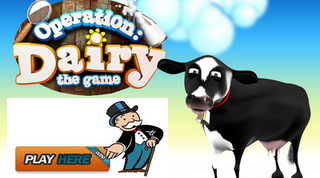News
ManuREsource showcases latest manure processing technologies

ManuREsource, an international conference on manure processing and valorisation, unveiled new manure processing technologies at its recent congress. The congress, ManuREsource 2022, took place on 11-13 May in Den Bosch in the Netherlands. It was organised by the Flemish Coordination Center for Manure Processing.
Manure processing is an important topic for the agricultural sector, the organisers said in a press release. This became clear during the plenary sessions at the opening of the ManuREsource Congress on 11 May. The right combination of low-emission housing systems and the extraction of biogas and RENURE products from manure minimises emissions of ammonia and methane to the environment. In this way, valuable green energy and circular fertilizer products are produced, which are crucial for a circular agriculture that is less dependent on mining, fossil energy and geopolitical uncertainties.
However, the time to develop and market the necessary innovations is too long. The admission of new technologies must be accelerated. ManuREsource organisers believe this can be done by amending legislation and replacing long lasting and expensive accreditation procedures with target requirements regarding the performance that technologies must deliver. New measurement and assurance systems must first be developed for this.
There is a desire in several European regions to have the use of RENURE fertilizers approved in Europe. Members of the European Parliament Tom Vandenkedelaere and Jan Huitema argued for this in a video message. They both strongly believe in the circular economy and are therefore fully committed to making this transition a reality.
Representatives from North Brabant (NL), Flanders (BE), Denmark (DK), Nordrhein-Westfalen (DE), Catalonia (ES) and Brittany (FR) discussed the approval of RENURE fertilizers. The implementation of clear European RENURE criteria is a precondition for investments in the required technologies, as was apparent from the discussion. However, many conference participants present are waiting for implementation by the European Commission, according to the press release.
On the second day of the congress, an explanation was given about the new European Fertiliser Regulation 1009-2019, which will come into force on 16 July of this year. The aim of this regulation is to ensure a transparent and open European market for, among other things, organic fertilizers. The idea behind this is that both production and use of organic fertilizers will be stimulated. This fits in with a policy in which the circular economy is stimulated. In addition, a vision was shared about off-gas scrubbing which, as environmental treatments of air, produces waste products and not processed manure.
Four innovations were nominated for the Ivan Tolpe Award 2021: NMR technology for online measurement of TN, TP and P from Nanonord (DK); ValuTrac pig farming system with source separation and valuation of faeces and urine from Cooperl (FR); Biomaterials (plant pots) from manure, developed by dairy farm Somers (BE); and AMFER ammonia recovery from manure and digestate from Colsen (NL). After the nominees presented their innovations, the Ivan Tolpe Award 2021 was finally awarded to Colsen for their AMFER technology.
It became clear during the presentations of Fertimanure and Nitroman that not only the recovery, but also the use of recovered fertilisers is important. In addition, dozens of other research results were presented in the field of manure management, nitrate leaching, nutrient absorption and processing of manure and digestate.
On the last day of the congress, participants were able to see how a number of progressive entrepreneurs are already applying new fertiliser valorisation technologies. Site visits were made to mono-manure digesters and RENURE producer Groenewoud Gas, VP-Hobe took visitors into a virtual control room of various operational manure processing installations and new machines for low-emission and precision fertilization with RENURE fertilizers were demonstrated at Werktuigencooperatie De Kempen.






















